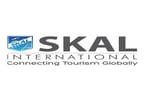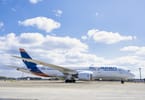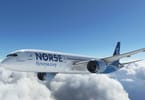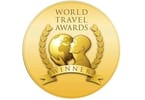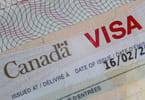WOuld you think airline loyalty programs are not as effective as they could be in driving loyalty among their core audience of frequent travelers, Deloitte said Monday in its report “Rising above the Clouds: Charting a course for Renewed Airline Consumer Loyalty”.
Deloitte’s Travel, Hospitality, and Leisure practice is pleased to announce our new report, Rising above the Clouds: Charting a course for renewed airline consumer loyalty. In this report, we explore the state of loyalty in the airline sector.
Our findings suggest that an undifferentiated one-size-fits-all approach to loyalty improvement will seldom be fully successful because no two travel cohorts—and no two individual travelers—are identical in what matters to them in the air travel experience, airline loyalty programs, and the manner in which they prefer to engage and be engaged. Yet, despite this outlook of concern—or perhaps because of it—airlines have a unique opportunity to distinguish their brands in an effort to build a truly loyal consumer base.
Charting a course for renewed airline consumer loyalty
Specifically the research uncovered a number of findings that should give airlines pause:
Airline loyalty programs fail to engage
Loyalty program members are far from loyal and airline loyalty programs fall short in achieving their objectives—particularly among high-margin business and high-frequency travelers.
44 percent of business travelers and a remarkable 72 percent of high-frequency business travelers participate in two or more airline loyalty programs
Two thirds of overall respondents were at least open toward switching to a competing loyalty program even after achieving highest status level
Loyalty programs matter more to some travelers than to others
Overall respondents ranked loyalty programs as only the 19th most important airline experience attribute (out of 26 attributes). However, high frequency business travelers ranked loyalty programs second, even higher than safety.
Passengers plan and book in different ways
Our research reveals significant differences in travelers’ booking/planning behaviors and engagement preferences. These differences underscore the need for differentiated, targeted approaches to building loyalty and customer engagement.
Airlines need champions
Put simply, the flying passenger has the potential to serve as an airline’s most effective marketing tool. Yet, our research shows that only 38 percent of survey respondents responded positively when asked whether they would serve as a brand ambassador.
The inaugural survey that provides insights into consumer travel behavior and loyalty program satisfaction in the airline industry.
“The airlines should consider taking a hard look at how they are engaging with their loyalty program members if they want to cultivate genuine brand loyalty,” said Jonathan Wall, assistant director, hospitality and real estate advisory at Deloitte Middle East. “With increasing competition and heightened consumer pragmatism, airlines may need to focus on personalizing the customer experience in a way that makes individual travelers feel special.”
“Bottom line: airlines should consider making their loyalty program rewards personally meaningful,” Wall advised. “For example, our research showed that only 38 percent of respondents had a positive reaction when asked whether they would serve as an airline brand ambassador. Airlines need to keep in mind that a flying passenger has the potential to serve as an airline’s most effective marketing tool. They should consider providing customized experiences for individual travelers, and encourage loyalty with unexpected and in-the-moment, accessible rewards, to help them not only redefine and reshape the customer experience, but also ultimately build lasting relationships with their customers,” Wall pointed out.
Considering airlines use reward programs to drive brand loyalty exclusively, a remarkable 50 percent of overall respondents are enrolled in two or more airline loyalty programs, with one-third of overall respondents participating in two or more programs. Participation in multiple programs among business travelers increased to nearly 44 percent.
Furthermore, the survey showed that two-thirds of overall respondents are receptive to the idea of switching to a competing loyalty program – even after achieving the highest status level with their current program.
Perhaps even more worrying for airlines, the survey reveals that the importance of loyalty programs appears to be surprisingly low. Travelers overall – and business travelers specifically – ranked loyalty programs as only the 19th and 18th most important attribute when selecting an airline (out of 26 attributes), respectively.
However, despite their low nominal rankings among overall respondents, loyalty programs remain valuable to high-frequency business travelers, ranking as the second most important attribute – even higher than safety. As such, loyalty programs still remain a viable way for airlines to drive customer loyalty, particularly if those airlines can differentiate their programs to stand out from the rest.
According to the survey, characteristics one type of traveler views as being important in a loyalty program, another may view as less important. For example, 76 percent of high-frequency business travelers view more opportunities to earn and redeem points as vital, as opposed to just 64 percent of all respondents. Meanwhile, only 40 percent of all respondents believe access to airport lounges to be important whereas 68 percent of high-frequency business travelers value such access.
Additionally, the survey revealed significant differences about how passengers plan and book travel. An overwhelming 83 percent of respondents visit price comparison sites to book travel and 72 percent consult family members when planning a trip. In comparison, respondents’ social media usage was far less popular – with only 13 percent using social media networks to research or plan and just 27 percent using an airline application. Results are similar when it comes to how airlines engage with passengers with 80 percent of all respondents preferring email while just 26 percent favor engagement via social media.






